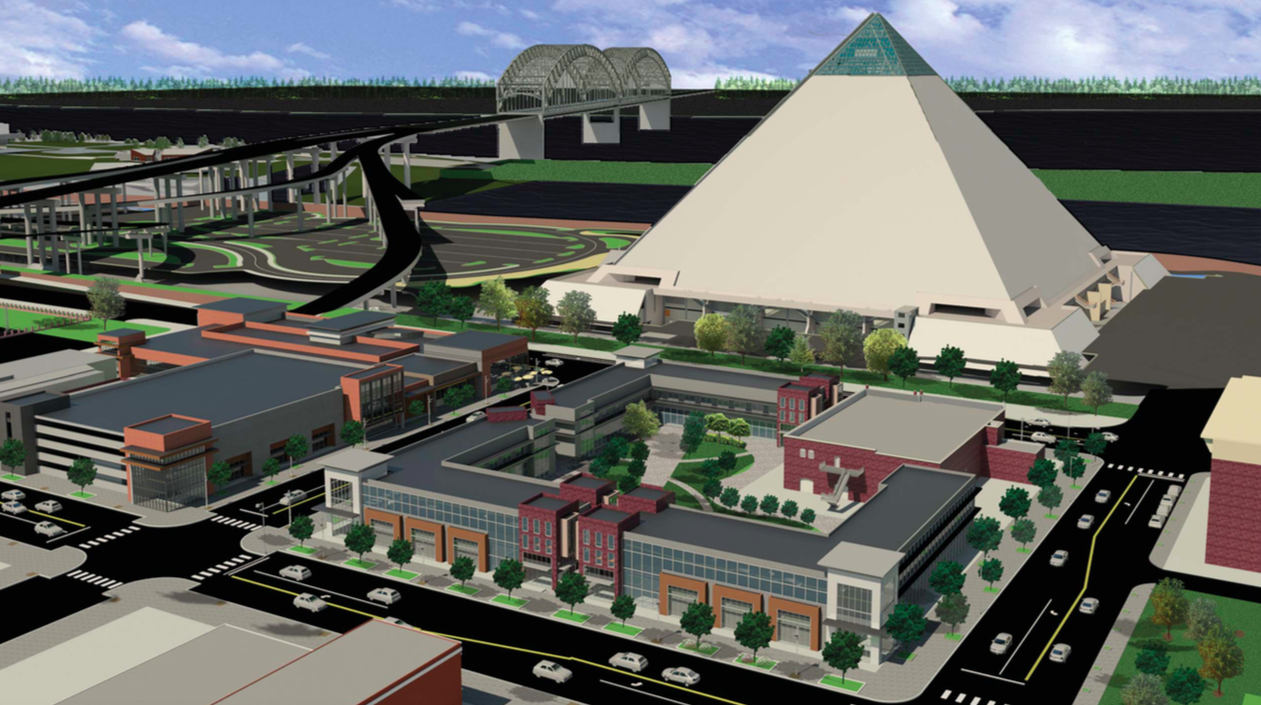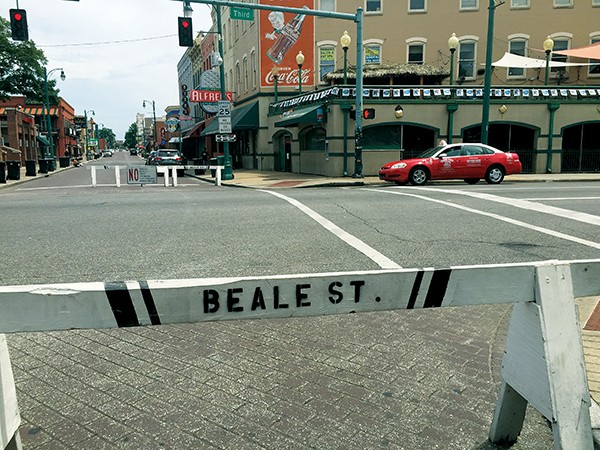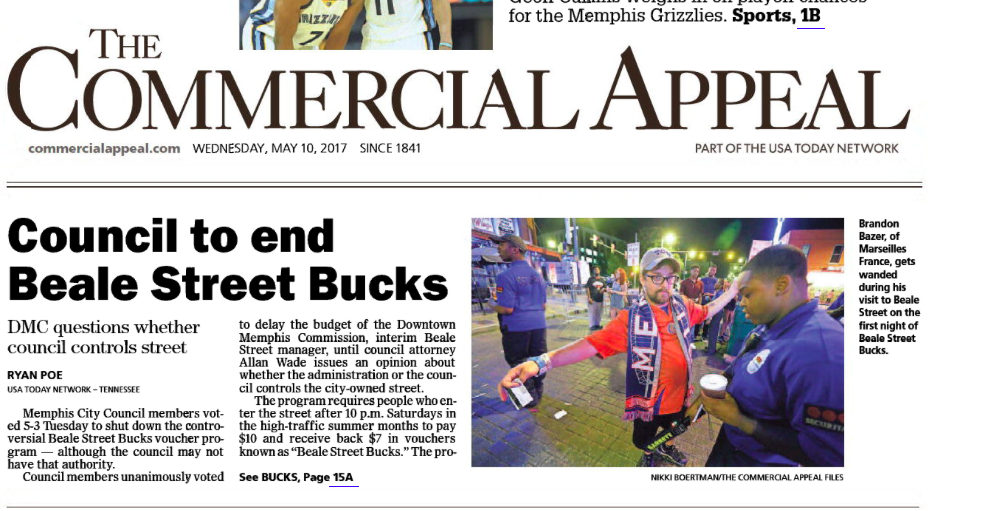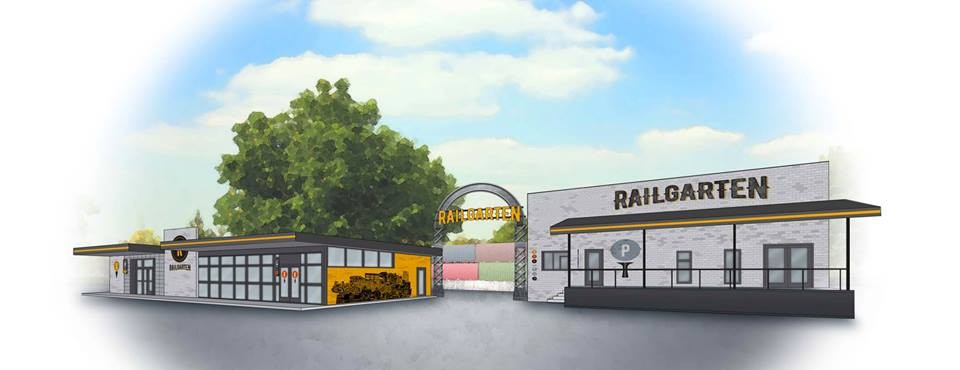 City of Memphis
City of Memphis
An image from the Pinch District Concept Plan
Tuesday was kind of a big day at Memphis City Hall but it really set up what could be a big day of votes when the the council meets again in two weeks.
The morning was packed with budget hearings, which produced some fireworks, including the debate on Beale Street Bucks (more on that below), the silence on the council’s own budget, and City Court Clerk Kay Robilio saying a contract from her office went to a “man of color.” Council chairman Berlin Boyd politely reminded Robilio that the preferred term is “African-American.”
Beale Street Bucks
 Alaina Getzenberg
Alaina Getzenberg
Beale and Third
Race stirred the discussion of this controversial program, which was started by the Downtown Memphis Commission (DMC), to support security and curb overcrowding on Beale Street on certain days and after certain hours.
Some council members felt that paying to get on Beale Street was a form of racial profiling and a way to keep African-American off the street during popular hours.
DMC president Terrence Patterson (who is African-American) said race had nothing to do with the Beale Street Bucks program. The program was initially instituted as a response to some stampedes on the street last summer.
Check here for details on the program.
A council committee did vote to end the program. But that vote certainly was not the final word on Beale Street Bucks, despite a misleading headline in Wednesday’s Commercial Appeal that said “Council to end Beale Street Bucks.”
 The Commercial Appeal
The Commercial Appeal
The full council decided to delay a discussion and final vote on Beale Street Bucks until the end of Memphis in May, per a request from Memphis Mayor Jim Strickland.
The discussion emerged during the budget hearing for the DMC. The group manages Beale Street for the city. Council members wondered if they had the authority to direct the DMC, or if that authority rested with the mayor’s office.
Nevertheless, the council decided to hold the DMC’s budget until the council’s attorney, Allan Wade, had an opportunity to issue an opinion on the matter.
That’s where the issue stands and where it will be until the council convenes again in two weeks.
Railgarten
 Facebook (Railgarten)
Facebook (Railgarten)
The council also set up a hearing to possibly decide the fate of Railgarten.
The next council meeting will feature an evidentiary hearing on whether or not the council should take back the permit it gave Railgarten owners back in February to operate their entertainment complex in Midtown.
The hearing will likely be a public review of the facts in the case in which council members will weigh the pros and cons of revoking the permit, according to Wade. After the hearing, the council could (or could not) vote to revoke Railgarten’s special permit, which could, effectively, shut the place down.
 Facebook (Railgarten)
Facebook (Railgarten)
However, council chairman Berlin Boyd struck a hopeful note about the issue and the process in his wrap-up of Tuesday’s council meeting. He said the hearing was “a first step in getting the process back on track for this new development in the Midtown area.”
The resolution presented to the council by Wade Tuesday afternoon, though, is a little tougher. It states that Rallgarten owners did not tell council members that they were going to use “the other portion of the property” (apparently the yard behind the diner and the bar) in “an integrated manner.”
Doing so, according to the resolution, caused “a substantial and undue adverse effect upon adjacent property, the character of the neighborhood, traffic conditions, parking, utility facilities, and other matters affecting the public health, safety, and general welfare.“
[pullquote-1]The move also caused “severe parking congestion and issues” for surrounding businesses including Central BBQ, Palladio Antiques and Arts, Urban Outfitters, and Mapco.
However, the resolution did not mention Railgarten’s use of shipping containers on the site. The resolution says that the council can revoke all or a portion of the permit issued to Railgarten.
The hearing will take place at the beginning of the council next meeting on May 23.
The Pinch Plan
 City of Memphis
City of Memphis
An image from the Pinch District Concept Plan
In two weeks, the council will also review (and possibly cast a final vote on) a final plan that will guide development in the Pinch District.
The council halted all new construction in the nine-block district back in July 2015. Since then, city leaders have been working with Pinch neighbors and stakeholders to devise a plan that will give possible developers a map as to how they can and should build there.
City leaders held four community meetings about the plan and it “reflects the will of the community,” according to Paul Young, the director of the city’s division of Housing and Community Development.
But the plan also reflects interests of St. Jude Children’s Research Hospital, which owns four and a half blocks of the Pinch, according to Young. St. Jude plans to expand its facility in the next five years, adding 1,800 employees and spending some $9 billion here.
Wade explained why the Pinch plan was important to St. Jude.
“Essentially, they have a lot of families coming to their campus and they now disperse those people throughout the city,” Wade said. “It is important for them to have a plan like this to help those families stay near the campus.
That’s why some of the buildings (in the plan) are larger than typical and why we need retail there, so families can stay close to campus.”
The plan features some requirement on building heights, setbacks, and more. But Young said his office is already at work to build a pedestrian bridge to connect Bass Pro Shops at the Pyramid to the Pinch. Also, a connection to the Riverwalk is also being constructed around Bass Pro.